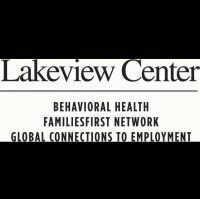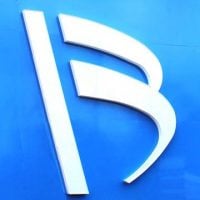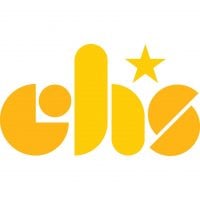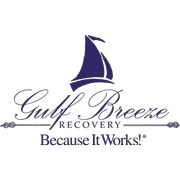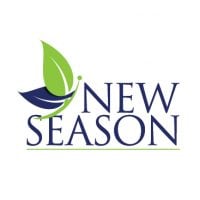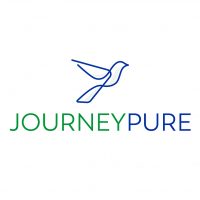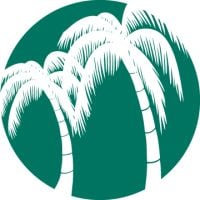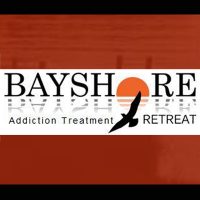About This Florida Facility
Lakeview Center - West Avery Street, situated in Pensacola, Florida, is an outpatient treatment facility dedicated to helping individuals overcome alcohol and substance addiction. With a history of providing comprehensive behavioral health services, Lakeview Center offers a range of programs tailored to meet the unique needs of each client.
• Individual counseling sessions to address personal challenges and develop coping strategies
• Group therapy to foster peer support and share experiences in a safe environment
• Family support programs to educate and involve loved ones in the recovery process
• Evidence-based practices that have been proven effective in treating addiction
Accredited by the Commission on Accreditation of Rehabilitation Facilities (CARF), Lakeview Center - West Avery Street maintains high standards of care. The facility's experienced staff conducts thorough evaluations to determine the most appropriate treatment plan for each individual, ensuring personalized attention and support throughout the recovery journey.
The center specializes in treating alcohol and substance addiction, employing a comprehensive approach that combines evidence-based therapies, medication-assisted treatment, and relapse prevention training. By equipping clients with the necessary tools and skills to maintain sobriety, Lakeview Center - West Avery Street aims to empower individuals to achieve lasting recovery and improve their overall quality of life.
Genders
Ages
Modality
Additional
Accreditations

CARF
The Commission on Accreditation of Rehabilitation Facilities (CARF) is a non-profit organization that specifically accredits rehab organizations. Founded in 1966, CARF's, mission is to help service providers like rehab facilities maintain high standards of care.
Conditions and Issues Treated
Many people who struggle with opioid addiction need to attend specific programs like methadone , Suboxone or Vivitrol clinics.
These types of programs will provide the patient with legal, prescription medications that can help them overcome their cravings for illegal opioids like heroin or fentanyl . If the patient has a chronic condition like Hepatitis C, they must undergo treatment before they can begin taking these medications.
Dual Diagnosis refers to someone who is both dealing with addiction and another mental health issue.
There are different kinds of Dual Diagnosis: A person who simultaneously experiences both a mental illness and an addiction disorder. Or, a person who experiences one or more coexisting (simultaneous) mental health conditions in addition to a primary substance use disorder.
Some conditions that commonly co-occur with addiction include:
- Personality Disorders (Borderline, Narcissistic)
- Mood Disorders (Bipolar Disorder, Depression, Anxiety Disorder)
- PTSD (Post Traumatic Stress Disorder), OCD (Obsessive Compulsive Disorder), ADHD (Attention Deficit Hyperactivity Disorder)
- Schizophrenia, Psychosis, Hallucinations, Delusions
Levels of Care Offered at Lakeview Center
This center offers a variety of custom treatment tailored to individual recovery. Currently available are Drug Rehab, Dual-Diagnosis, Outpatient, with additional therapies available as listed below.
Outpatient treatment programs provide drug and alcohol addiction treatment through individual sessions with a counselor, group therapy, 12-step meetings, and other activities to help individuals gain sober living skills. Most programs are designed for those individuals who have completed a medically supervised detoxification program and provide opportunities for clients to begin the process of early recovery.
Outpatient programs also offer a level of medical support as needed and psychological backing through therapy. Clients are encouraged to live at home, though there may be some flexibility regarding this requirement based on the circumstances and needs of each patient.
Outpatient treatment is perhaps the most common type of dual diagnosis program available. It does not pose a significant financial burden on patients. However, it is essential to note that outpatient treatment does not provide the support and supervision given in residential programs. Some addicts may need this level of support to maintain their sobriety.
Therapies & Programs
Therapy sessions focused on the individual addict can provide much-needed guidance as they work toward overcoming their addiction. These types of sessions typically involve guidance from a therapist, who will help addicts identify and process their feelings and cravings.
During these sessions, addicts may develop plans for coping with the triggers that typically lead to relapse and learn how to avoid those triggers during their recovery process.
The main goal of family therapy for drug addiction is to create an environment where communication can occur without judgment, hostility, or blame that often occurs within a family.
Family therapy is a type of group problem-solving that aims to improve communication and relationships between the patient, their family, and sometimes friends. The therapist is with the family as they learn to communicate with each other differently, especially with the addict when s/he is using.
The family can learn to reduce their enabling behavior or rally together and support each other during tough times. The patient also learns how to deal with their addiction and maintain sobriety while interacting with the family.
Different types of addiction treatment services are available. Within this article, group therapy is of interest due to its high success rate compared to individual therapy. Group therapy settings are beneficial because they allow recovering addicts to build a strong support network.
Benefits of group therapy are:
- Reduces feelings of isolation
- Immediate access to social support in the form of fellow addicts in recovery
- Lowers risk of relapse
- Increases rate of sobriety
- Builds coping skills that can be applied to everyday life
Payment Options Accepted
For specific insurance or payment methods please contact us.
Is your insurance accepted?
Ask an expert, call (888) 674-0062
Additional Details
Specifics, location, and helpful extra information.
Pensacola, Florida 32501 Phone Number(850) 469-3495 Meta DetailsUpdated April 15, 2024
Staff Verified
Patient Reviews
There are no reviews yet. Be the first one to write one.
Pensacola, Florida Addiction Information
Florida is one of the nation's epicenters for substance abuse and drug-related overdoses. In 2014, around 410,000 Florida residents were addicted to drugs and alcohol. Over the last 10 years, 12% of all deaths in the state were attributed to substance abuse. Treatment admissions for alcohol reached 24,329 patients in 2016, and 2.5% of Florida high school students admitted to using crack cocaine.
In Pensacola, FL, marijuana is the most commonly abused drug, followed by illicit prescription drugs. There were 967 overdose deaths with cocaine as the primary substance involved in Pensacola, Florida in 2014. 7.8% of Pensacola, FL residents met the criteria for illicit drug dependence or abuse in 2014. Treatment options are available in Pensacola including inpatient rehab centers or outpatient rehab centers, 12 step programs, and other treatment modalities.
Treatment in Nearby Cities
- Saint Cloud, FL (389.2 mi.)
- Perrine, FL (536.5 mi.)
- Madeira Beach, FL (324.0 mi.)
- Citra, FL (315.1 mi.)
- De Bary, FL (370.9 mi.)
Centers near Lakeview Center
The facility name, logo and brand are the property and registered trademarks of Lakeview Center, and are being used for identification and informational purposes only. Use of these names, logos and brands shall not imply endorsement. RehabNow.org is not affiliated with or sponsored by Lakeview Center.



